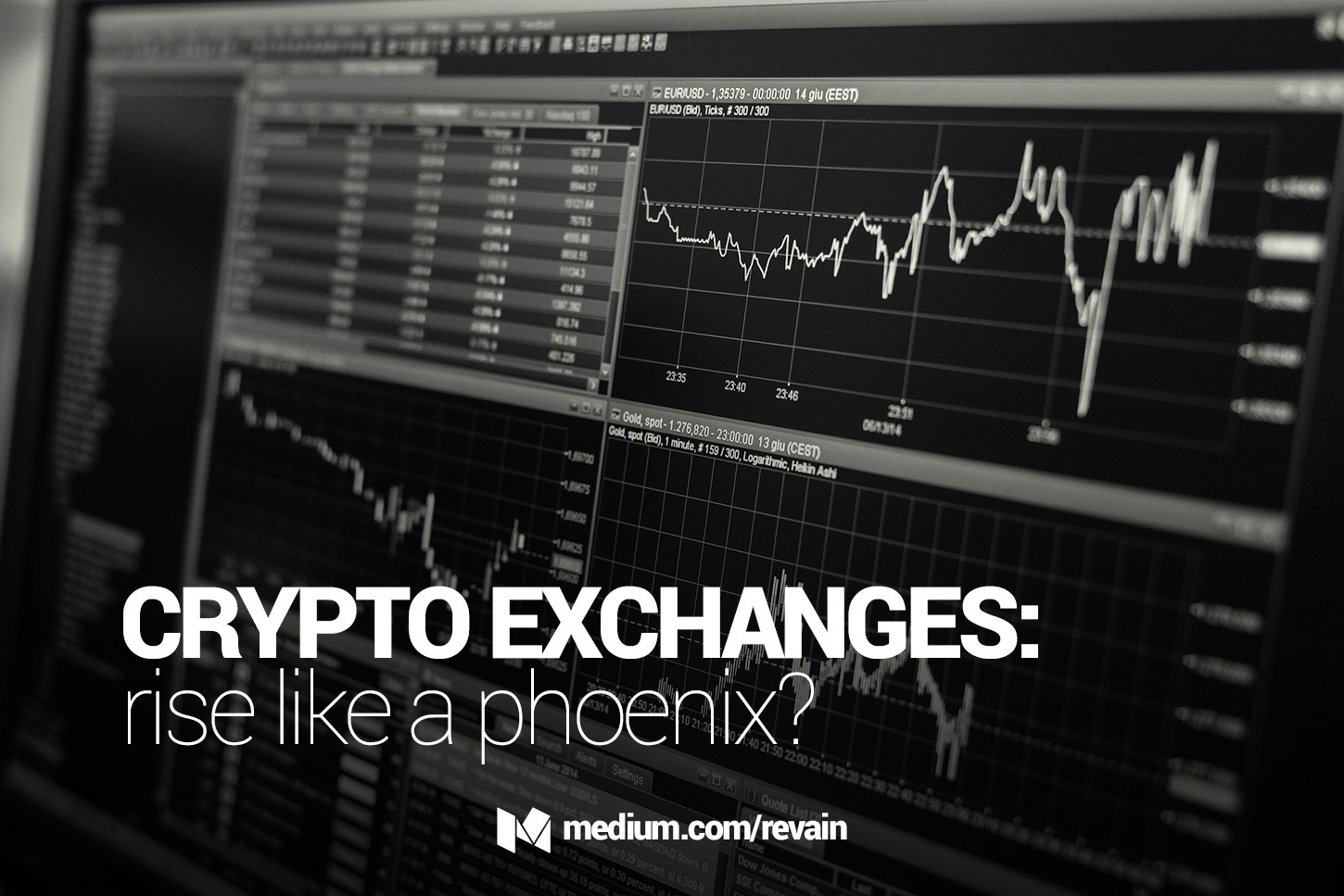Crypto exchanges: rise like a phoenix?
 From recent revelation of fake trading volumes at OKEx showing how sell-offs can manipulate the prices of cryptocurrencies at exchanges to ongoing ambiguity in crypto regulation with news from Japan issuing a warning against Binance and recent SEC hearing with Coinbase stating that the government is harming the innovation — crypto exchanges seem to be taking a hit. On a brighter side, it looks like they might as well be going mainstream in the next couple of years. This week headlines featured the news of Yahoo!-related Japanese web-giant is to open a legitimate cryptocurrency exchange. That is quite an interesting turn of events knowing that the company has been licensed by a local financial regulation agency that earlier was seeking to ban the world’s largest exchange Binance for failing to register as an operator. Binance’s CEO then confirmed the exchange relocation to Malta that is very progressive in terms of fintech. And with recent announcement of a public blockchain to facilitate the creation of a new decentralized ecosystem, the future looks bright for Binance, really. Reassuring news are also coming from Canada, where the business community is leading the way with Canadian major stock exchange operator starting a cryptocurrency brokerage service.
From recent revelation of fake trading volumes at OKEx showing how sell-offs can manipulate the prices of cryptocurrencies at exchanges to ongoing ambiguity in crypto regulation with news from Japan issuing a warning against Binance and recent SEC hearing with Coinbase stating that the government is harming the innovation — crypto exchanges seem to be taking a hit. On a brighter side, it looks like they might as well be going mainstream in the next couple of years. This week headlines featured the news of Yahoo!-related Japanese web-giant is to open a legitimate cryptocurrency exchange. That is quite an interesting turn of events knowing that the company has been licensed by a local financial regulation agency that earlier was seeking to ban the world’s largest exchange Binance for failing to register as an operator. Binance’s CEO then confirmed the exchange relocation to Malta that is very progressive in terms of fintech. And with recent announcement of a public blockchain to facilitate the creation of a new decentralized ecosystem, the future looks bright for Binance, really. Reassuring news are also coming from Canada, where the business community is leading the way with Canadian major stock exchange operator starting a cryptocurrency brokerage service.
The truth of the matter, however, is a lot more gray. Why would regulators and financial titans like Goldman Sachs interfere with the young crypto market? Recent Poloniex buyout leaves no room for doubt: crypto trade volumes and liquidity are a plum for both mainstream finance and the authorities. So the struggle is real: would exchanges go under control thus becoming completely centralised (or even merge into single enormous entity) or fulfill the dream of blockchain enthusiasts becoming fully decentralized? Most likely, in the next couple of years the 2–3 major players will be either cooperating with the government or going solo by building an independent ecosystem providing for a complete decentralization that has long been awaited in trading community. No doubt, decentralization is a great concept as it appears to be the only way to stop those notorious hacks together with pump and dump schemes. More so, decentralization will give users full command of their assets leaving the exchange control behind and mitigating the risks of funds being lost or stolen. There is maybe one downside that in fact can ruin the whole idea: to write down each and every trading order to blockchain appears to be rather costly — both data and money wise.
At the same time, the immaturity of trading ecosystem — whether it be centralized or not — only complicates the issue. Even solid exchanges with large trade volumes can hardly boast security or user-friendly interface. Stories of unsavy investors and traders losing their coins are in the headlines every other day. In the world of fake trading volumes and giants like Bitconnect going down the drain in one day, how are we to know what exchange to trust? Good old Yelp-like review platforms are no help here — simply because there is none. Or it hasn’t been until now. A young driven startup Revain is building a first-ever unbiased customer reviews platform that has potential of disrupting the status-quo: they’ve already introduced ICO reviews tab and are now targeting crypto exchanges. Platform users has been given the opportunity to leave reviews on crypto exchanges based on a number of criteria: support, registration and withdrawal process. For now, the scoring is available for a few major exchanges with plans to add new ones pretty soon.
Ultimately, based on current trends, my guess would be that crypto exchanges decentralization is not entirely out of realm of possibility. Especially with the likes of Binance building their own blockchains. The timeline for mainstream takeover, however, is still out of sight.
Hi! I am a robot. I just upvoted you! I found similar content that readers might be interested in:
https://medium.com/@arbidexpromo/is-it-time-for-decentralized-crypto-exchanges-yet-e7fc043b4140